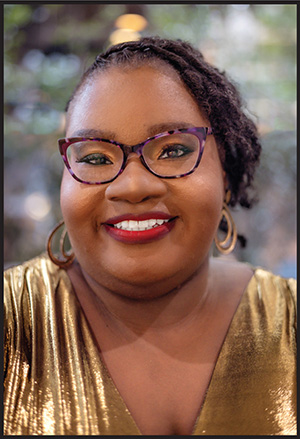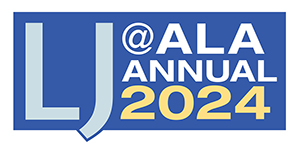People
Library Journal is proud to announce a new partnership with the “Libraries Lead” podcast. Hosted by Mike Eisenberg (Professor and Dean Emeritus, U. of Washington iSchool), David Lankes (Virginia & Charles Bowden Professor of Librarianship, University of Texas at Austin), and Beth Patin (Assistant Professor, Syracuse University's School of Information Studies), the show explores the various social, cultural, and technological issues shaping (and being shaped by) libraries and librarians. New episodes drop monthly, and past episodes are now available at librarieslead.libraryjournal.com.
My journey into librarianship was a bit unusual: Unlike those who began as a page or in an LIS role fresh out of grad school, my library career started in marketing. It was my job to understand the many ways the library brought value to the community and to develop stories and campaigns that shed light on the best aspects of our work. I was so inspired by what I saw in our branches that I eventually pursued a library degree. And as I deepened my knowledge, I saw that libraries could benefit from more attention to external communication.
Nicollette Davis, assistant librarian for kinesiology, social work, and health sciences at the Louisiana State University library system, was named a 2024 Library Journal Mover & Shaker for her work advocating for BIPOC people, both in the library system and in the community. We recently spoke with Davis to learn more about her projects.
Perhaps one of the truest versions of life in America’s small and rural communities can found each day in their public libraries, where residents connect.
Dr. Colleen Shogan took the oath of office as the 11th Archivist of the United States—the chief administrator of the National Archives and Records Administration (NARA)—in May 2023, succeeding former Archivist David Ferriero. She is the first woman to permanently hold the role. LJ caught up with Shogan to hear about her national tour of presidential libraries, NARA’s stepped-up digitization efforts, and preserving the record of presidential cat Socks.
Representing approximately 80 percent of the trade book market, the Big Five publishing houses—Hachette, HarperCollins, Macmillan, Penguin Random House, and Simon & Schuster—are key stakeholders in the library value chain. In Five Questions with the Big Five, LJ interviews publishing’s top brass to better understand the issues they’re facing, the trends that have their attention, reading culture, and where they see library and publishing interests aligned. We kick off this series with Jonathan Karp, President and Publisher of Simon & Schuster, as he reflects on the state of publishing and his company's 100th anniversary.
Keynoters and other speakers at American Library Association (ALA) conferences over the years have come to the conference from a wide range of disciplines, but their speeches all incorporate at least a few minutes attesting to the value of libraries in their lives—some landing more powerfully than others. At this year’s ALA Annual, held June 27–July 2 in San Diego, CA, a few speakers went beyond tales of being avid library users as children to tell stories that painted vivid pictures of what libraries, literacy, and unfettered access can mean to a kid who is looking to understand their world a little better.
Frankly, I should have seen it coming, but personal growth and change can be so subtle that you sometimes don’t realize you’re doing it until you’ve done it. When I literally squealed with delight upon discovering “Gardening with Monty Don” on the Hoopla BingePass at PLA 2024, it dawned on me that I was no longer someone who just liked plants...I’d become a gardener.
ALREADY A SUBSCRIBER? LOG IN
We are currently offering this content for free. Sign up now to activate your personal profile, where you can save articles for future viewing








